‘We have had somebody come into the shop and say they will burn it down with people inside’
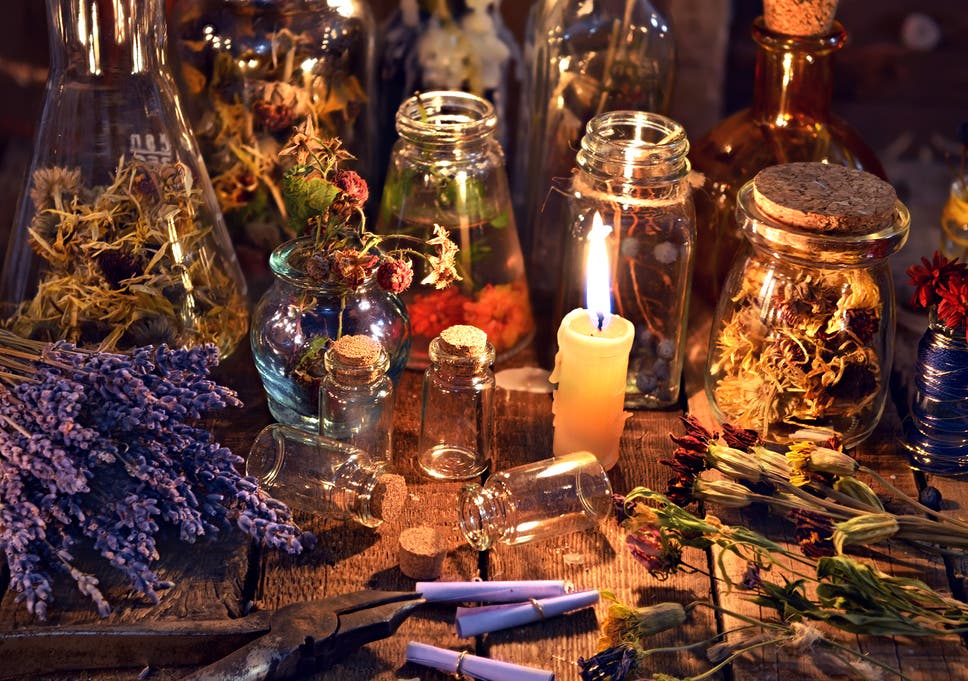
‘Witchcraft isn’t worshipping the devil, it’s not cursing people, it’s not black magic. It’s a belief in the planet’ ( Getty )
They were once ducked in water, burnt at the stake and hanged – but modern-day witches say that even in 2020 they are still facing persecution.
Abuse, intimidation, property damage and threats of murder are all common, a new investigation has found.
“We have had somebody come into the shop and threaten to burn it down with the people in it,” said Toni Hunter, who runs a witching store in Gloucester. “We have had very intimidating people stand outside and prevent customers coming in and accost the customers outside with their Christian leaflets.
“We have had eggs pelted at the windows, I’ve had my car keyed. It’s endless.”
The issue is raised in a BBC investigation due to be aired on its Inside Out West programme on Monday.
“Witchcraft isn’t worshipping the devil, it’s not cursing people, it’s not black magic,” Ms Hunter said. ”It’s a belief in the planet, it’s a respect for everything, it’s positive thinking, cosmic ordering.”
She added: “Lots of people don’t know they are witches – they’ll be into holistic therapies, they’ll be into crystals for remedial stuff.
“They’ll see spirits or they may have a high intuition that means that they can think of a person and they turn up or they know who’s on the end of the phone, so they have all these different abilities but they have never been able to speak about because it would have been still so controversial.
“People like me would probably have been sectioned years ago because if I admitted that I was psychic they wouldn’t have seen it as psychic, they’d have seen it as mad.”
Witchcraft has its origins in pre-Christian Europe. Followers worship the planet, use herbal remedies for healing and believe in the power of positive energy to cast spells.
An estimated 200,000 women accused of practising witchcraft were tortured and killed across western Europe from 1484 to the 1750s after Pope Innocent VIII denounced it as heresy. It became a capital offence in England in 1563.
MORE ABOUT
WITCHES | CHRISTIANITY | PAGANISM | WICCA
BOOK LOVER
I spent a week becoming a witch and the results were worrying
Inspired by Luna Bailey’s new book ‘The Modern Witch’s Guide to Happiness’, our columnist Ceri Radford set herself a New Year, New Me challenge
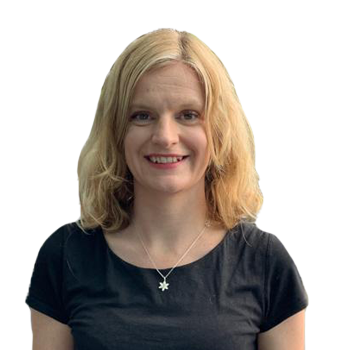
Sunday 12 January 2020 06:00
109 comments
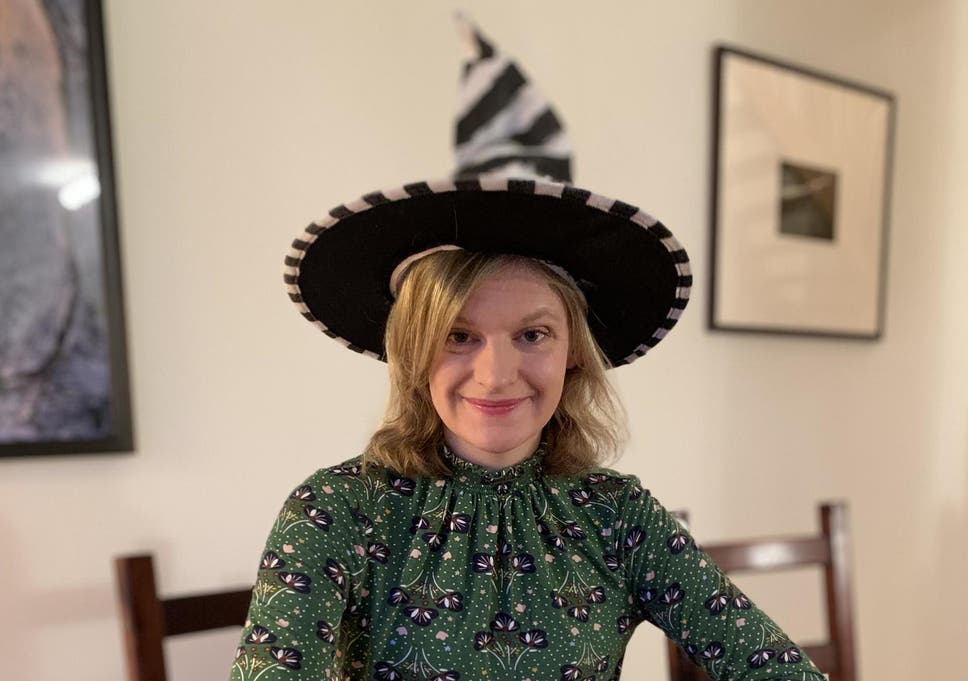
Ceri Radford gets down to some witching business
It’s the new year. I could have given up booze and bacon, or embarked on a punishing new fitness regime. But these seemed too harsh for the drab days of January and besides, I had more ambitious plans for personal transformation. Namely, to turn myself into a witch.
At this opening of a scary new decade, we’re in the midst of a resurgent interest in all things mystic, superstitious or more than a little bit woo. As the New Yorker magazine observed, “astrology is currently enjoying a broad cultural acceptance that hasn’t been seen since the 1970s”. And its cousin in dogged resistance to logic, specifically witchcraft, is also having something of a moment, refitted for the age of self-care as a way for women to reconnect with themselves and the natural world. Think crystals, not cauldrons. Last summer, Publishers Weekly noted that witchcraft was one of the strongest trends in the “mind-body-spirit” category, and the interest shows no sign of abating.
While never knowingly on trend – it took me five years to attempt a jumpsuit – I decided, for once, to seize the cultural zeitgeist. I picked up a copy of the newly published The Modern Witch’s Guide to Happiness by Luna Bailey and set my cynical self a New Year, New Me challenge
Monday
Right. This witching business. One of the things I need, along with a suspension of belief in the scientific underpinnings of the universe, is an altar. Not to sacrifice a goat upon – no, this book is whiter than a student union snowflake – but to claim a space for “creativity, spiritual growth and guidance”. Recommendations include some bright cloth, salt (“protective and purifying and represents the Earth’s energy”), plus objects to suggest earth, fire, air, water and spirit. I manage a pot plant, a small bottle of Polish plum vodka (spirit and fire in one – boom) and a stripy scarf. It doesn’t look anything like the Instagrammable extravaganza in the book, but at least it made me tidy my bedside table. By the end of the day, though, it has been joined by a light smattering of cat hair and my four-year-old’s lego T rex. Is the universe trying to tell me something?

Witches collect objects that suggest earth, fire, air, water and spirit (Joanna Kosinska/Unsplash)
Tuesday
Crystal-shopping time: no self-respecting witch in this new age of Aquarius would be without these ubiquitous lumps of pretty rock. I take myself to a gift shop. The book informs me that I should allow myself to be drawn to the crystal that has meaning for me. I position myself in front of a stand of crystal bracelets. Will it be the pastel-pink rose quartz, with qualities of “love, peace and tenderness” apparently laced into its silicon and oxygen atoms; or the “playful” inky-black bornite? I close my eyes, then open them. I found myself uncannily drawn to something, after all. It’s the price tag. Ten quid! I am propelled out of the shop by unseen forces.
Wednesday
Finally, some advice I can wholeheartedly embrace: five tips for making simple connections with nature, from touching leaves to noticing sights and sounds. Tricky but not impossible if you’re schlepping to work on the tube; easy where I live and instantly soothing. A frail yellow autumn leaf clinging by a thread; a rubbery weed poking through a desert of gravel; you get the picture. Another edict is to appreciate the seasons, including picking up an acorn or pine cone in autumn and keeping it through winter. Turns out I was witchy all along, as some colleagues would probably attest: in my coat pocket I still have a perfect, hard conker that I found in October. I don’t believe it offered me protection through the winter months, as the book claims; I just like the feel of it. I suspect a large part of the appeal of witchcraft today is the emphasis it places on slowing down, switching off from your phone and taking notice of the natural world.

Crystals are essential – but they don’t come cheap (Dan Farrell/Unsplash)
Thursday
Since I am well into my first week as a witch, I decide the time has come to attempt my first spell. None of the “magick” incantations listed involve putting a pox on my enemies, which will be a relief to the landlord who has failed to fix my broken boiler; they’re all perky personal growth exercises. After a skim, I settle on a “burning and banishing spell”. This involves writing down worries or unwanted personality traits on a piece of paper, then setting fire to it. Next to “tax return” I put “knee-jerk scoffing cynicism”. I would have set it on fire but I was too cynical to waste a match.
In fairness, there is a reasonable body of evidence to suggest that “journaling” is good for us. Taking time to think about and articulate what we want to let go of is no doubt psychologically healthy; for me, it’s the puff of smoke that’s a step too far.
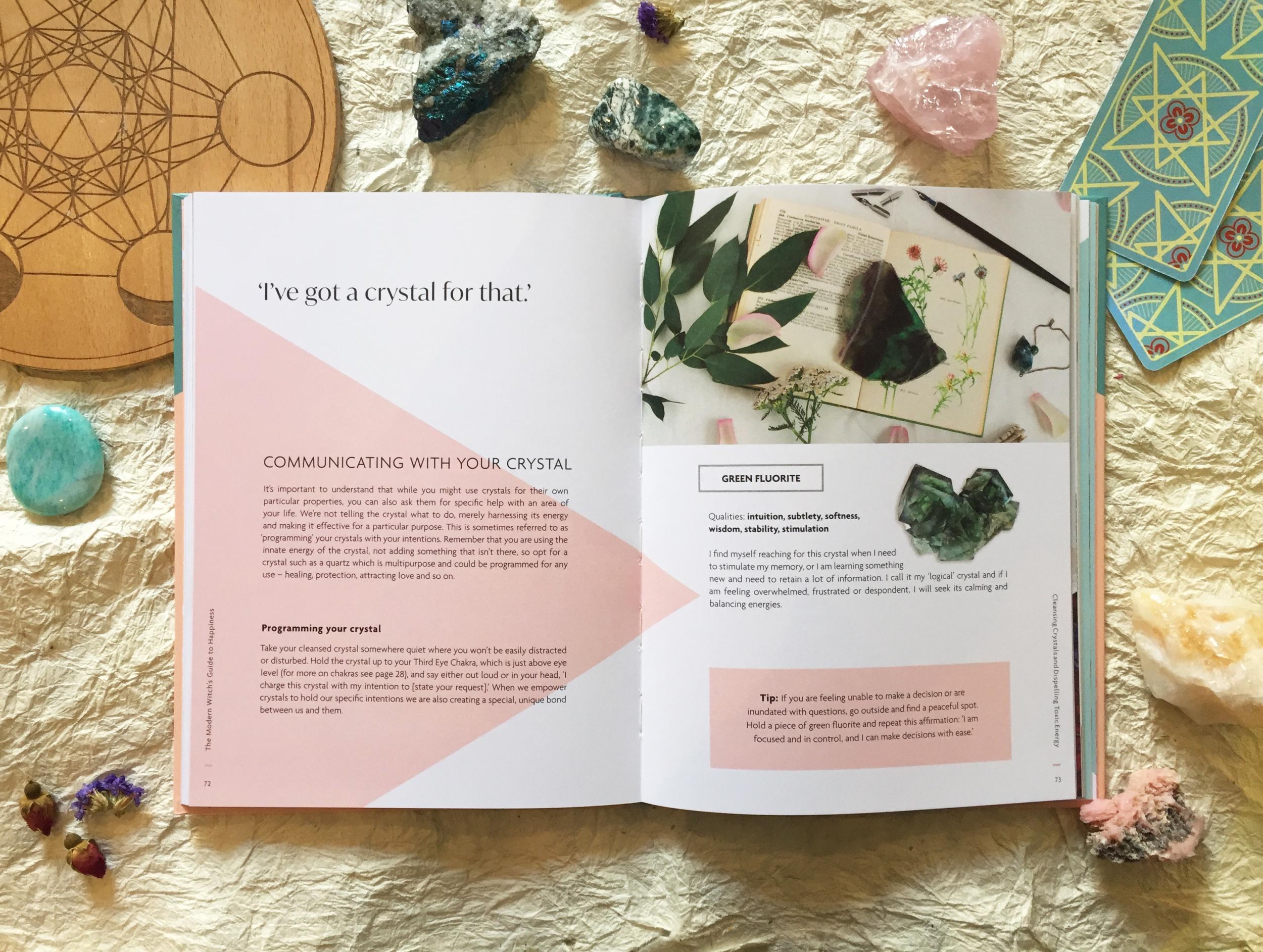
The Modern Witch’s Guide to Happiness (Michael O’Mara Books Ltd)
Friday
The last weekday, and time to take it up a level: I open the chapter on tarot and prepare to dabble in divination. I don’t have an actual set of cards, but witchcraft has a relaxed, homespun kind of vibe so I improvise. I raid my daughter’s toy drawer, find a set of sea-creature playing cards, and get reading. I must focus on my personal objectives, then hold the cards or lay them on a surface. The book suggests I start by selecting three cards and using them to answer three questions: “What is my dream? What is stopping me? What is the reality?”
If you go looking for a pattern in tarot cards, you will find it (Getty)
I turn three cards over: dolphin, shark, dolphin. The interpretation should apparently come from my own intuition. Dolphins are playful creatures; sharks are scary. For an actual moment, I find myself thinking: this makes sense! I want to spend more time on creative work; fear is holding me back; but the reality is I’m still a creative person underneath.
And there we have it: confirmation bias. You go looking for a pattern, and you will find it, even in a pack of deeply non-mystic marine-animal cards bought to entertain a small child on a rainy holiday in France. Our brains are built to leap to conclusions, to see what’s not really there – helpful if the twitching leaves might hold a crouching sabre-toothed tiger; misleading in modernity. It’s part of the reason we’re all such credulous suckers, still seduced by superstition at a time when we have the technology to make a space probe orbit Saturn.
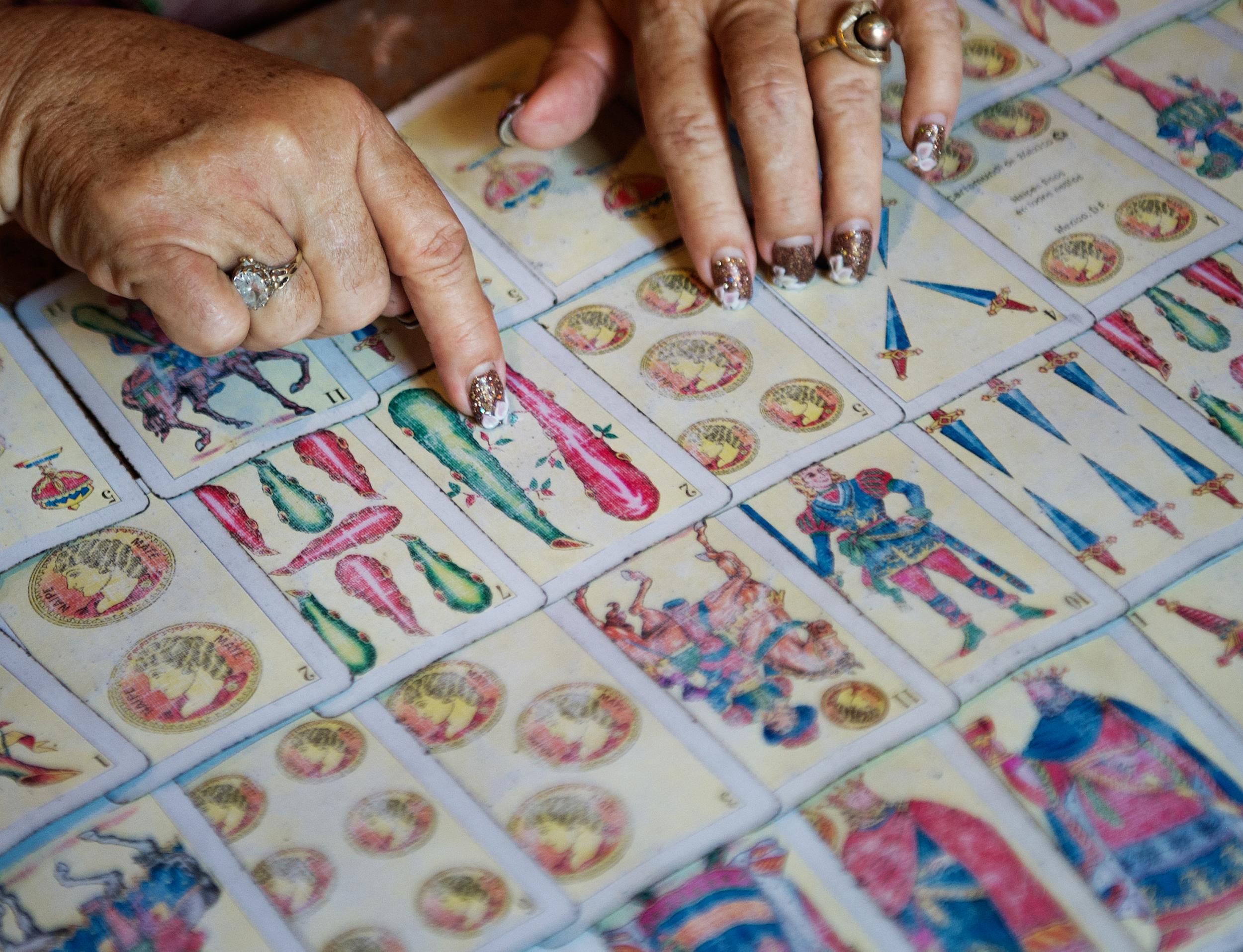
Saturday and Sunday
I spend the weekend pondering all things witchy. On the one hand, it’s hard not to snort coffee through your nostrils when you read that water that has had rose quartz soaking in it can be given to soothe traumatised animals. On the other, witchcraft is no less irrational than any other religion and many of its practices are in fact a fairly reasonable response to the major challenges of our time. Rediscovering nature, reclaiming the sexist trope of the witch as a symbol of female empowerment, switching off from the constant thrum of social media and consumerism: what’s not to like?

Many of witchcraft’s practices are a fairly reasonable response to the major challenges of our time (Getty)
The answer, of course, is that however benign or even beneficial the rituals, it’s all built on a wobbling base of bats***. No matter how many spells we cast to ask the universe for help, the universe isn’t listening. On a personal level, it’s probably better for us to just accept that life doesn’t always go our way and lower our expectations: Catherine Gray’s wonderful The Unexpected Joy of the Ordinary is a lovely new year read on finding the magic (no k needed) in the mundane. And on a broader level, the recent zest for the mystic is part of a worrying backlash against the enlightenment values that have driven human progress. On the one end of the political spectrum, you get the anti-vaxx movement; on the other, climate change deniers. Standing in the light of a full moon to recite our resolutions may be harmless, but as a society we shun science at our peril.
MORE ABOUT
WITCHCRAFT | ASTROLOGY | BOOKS
Comments
Iliana Adler3 weeks ago
Dear Independent, As a witch of 30 years, that had to study hard to try to become one, and that still feels that there is so much more that I need to learn, I found this article ridiculous and childish. A biased review of one single new age book does not a witch makes. I wonder if she would ever consider spending a week to become a pianist, or even better she should spend a week becoming an astronaut, by Sunday morning she should be able to launch herself to Outerspace and never subject any of us to another inane article such as this one. I am particularly offended by her obvious attempt to join in different agendas from anti-vaxxers to climate change deniers with the Craft; she climbed into her high horse named science and proceeded to give us her condescending opinion after one week of not being able to follow simple directions from one simple book but somehow she is an expert now. Journalism is dead, lazy 5-minute penup essays seem to be the norm, nowadays. My deepest condolences for the death of your art. We Witches will make sure to protect ours by voicing our opinions on garbage like this. Have a good day.
Reply
231
David Cox3 weeks ago
I could only skim through the self-congratulatory, disingenuous, intellectually and journalistically barren, common click bait drivel. This intentionally offensive, smug dismissal of something that brings peace and joy to a wide diversity of practitioners can only lead me to belive that The Independent took its name because the content is independent of thought, independent of empathy, independent of any shred of integrity. The derisive smirk of the author would be equally fitting in any photograph of a biased judgemental bigot wearing the garb of any belief system or culture as cheap drag while touting their own superiority. I make these comments not as someone who has ever self-identified as any variety of witch, but as someone who supports all people who embrace a guiding principle -- whether religious or philosophical -- that brings them comfort and pushes them to be better people. It is utter irony that this piece, which pales in comparison to hundreds of thousands of works written by journalistically-minded secondary school children worldwide, conflates belief with a rejection of science, when Ms. Radford is utterly devoid of any scientific approach to her inane rambling.
Reply
200
Marcus Katz3 weeks ago
Dear Independent I am writing in response to the article "I spent a week becoming a witch and the results were worrying" by your columnist Ceri Radford, published 12th January 2020. I am writing as an initiated Witch of forty years, author on Tarot and co-director of the Tarot Association. I wanted to register our response to the article, which we found misleading, non-factual, poorly researched and which I found personally offensive to my own spiritual practice. It is unclear that the column or article is a review, and at that, a review of a book by a likely pseudonymous author whose own credentials to write on the subject matter are not clarified. The purpose of an altar, for example, is not merely to look like an “Instagrammable extravaganza”. It is a religious or spiritual space made sacred by intent. To rubbish this on the basis of a half-hearted attempt to poke fun at it is beneath standards of both review and journalism. I would go so far as to suggest that the ‘Lego T-Rex” which appeared on the altar might be considered a magical comment on the childishness of the article and the way in which such articles are now themselves, extinct. The columnist misses the point that the universe not only listens but has a sense of humour. Similarly, the columnist attempts to conduct a tarot reading - not necessarily part of witchcraft per se - by not using a tarot deck, on the pre-conceived basis that it is all “confirmation bias”. Which, I guess, she does manage to prove to herself. The review cannot be based on not following the book, surely. The click-bait title of the article itself - that the practice of our beliefs is “worrying”, leads to an ill-informed and potentially dangerous slant on our life choices. If a journalist had spent a year exploring pagan practices worldwide, consulted authors and teachers, and then made this conclusion, it would only then bear the weight of the title. The “review” does not mention any of the many hundred other books on the subject, seemingly to give the practice given in one book the value that would give rise to the reviewer claiming they were “becoming a witch”. I would advise at least one academic book on the subject for future articles or reviews, such as ‘The Triumph of the Moon’ (1999) by Ronald Hutton. The lazy conflation of a spiritual practice with the “anti-vaxx movement” and “on the other [end of the spectrum], climate change deniers” is simply absurd. The columnist cannot suggest that her bad practice from one book represents any knowledge of the beliefs of “a witch” (from the title) and that those beliefs are associated in any way with the movements she references. There is much else to say on this poor and misleading article, and I am sure that many others will add to the response. I will at least follow one recommendation of the reviewer, and that is to “lower my expectations”, in this case, with deep sadness, of modern journalism. Bio Marcus Katz is an author of over fifty books on Tarot, Witchcraft and the Western Esoteric Initiatory System. He was initiated into the Witchcraft tradition of Gerald Gardner over forty years ago. He holds an M.A. in Western Esotericism (University of Exeter). He is co-director of the Tarot Association and course author for Magicka School.
Reply
220
TSuarez3 weeks ago
The universe is listening but not to something you try for a week. It listens over years and decades. Magic is getting information from "the cloud" through our intuition, dreams, visions etc. Sometimes a peak into the future, sometimes a warning, sometimes a symbol. Pay attention to messages that pop into your head as if out of nowhere, pay attention to synchronicity and recurring dreams.
Reply
60
madtom19994 weeks ago
A week? I wont bother reading this then.
Reply
230
No comments:
Post a Comment